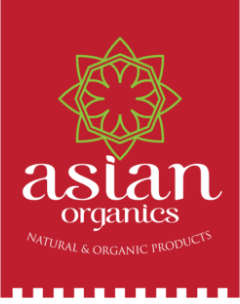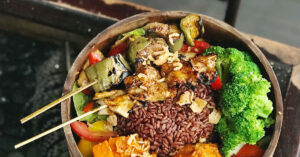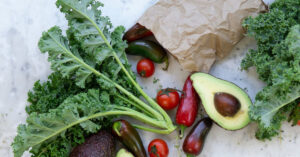Instead of the usual “top 10 health benefits” of organic food, let’s address the unfortunate organic food trend. Some of you might be thinking that organic food is nothing more than a fad. With everyone claiming to be organic and selling at ridiculously high prices, that does not mean we should accept it as the norm. Organic food can be reasonably priced; buying this healthier option for yourself and your family doesn’t have to be expensive, it just takes understanding of what organic food is.
The key distinction between organic food and conventional food is the production process; there are specific rules applied for producing organic food, everything else produced otherwise is already considered as conventional food.
The ASEAN Standard for Organic Agriculture defines organic agriculture as:
“A production system that sustains the health of soils, ecosystems and people. It relies on ecological processes, biodiversity and cycles adapted to local conditions, rather than the use of inputs with adverse effects. Organic agriculture combines tradition, innovation and science to benefit the shared environment and promote fair relationships and a good quality of life for all involved.”
This means that in South-East Asia organic farming needs to abide by this definition. This means that the entire production from planting to post-harvest follows the standard.
After harvesting the produce (e.g. rice, crops, herbs, fruits and vegetables) from organic farming, it is either processed as animal feed or food for human consumption. The latter is the organic food you’re already familiar with, the ones you see and purchase, typically at bazaars, weekend markets, and supermarkets. In processing from organic produce to organic food, the standard still applies with the definition as its core guide.
Some conventional food can be fortified with vitamins and nutrients using chemical processes, but it often overlooks the environmental impact, whether in farming or processing. In contrast, organic food production considers what’s good for our environment, our safety as food product consumers, and the workers’ welfare.
Focusing on nutrition, is organic food truly healthier than conventional food? Well, yes. Organic farming enriches the soil, and naturally enhances the nutritional content in the harvested produce. In contrast, produce derived from farming systems that used chemical fertilizers and pesticides leave trace amounts that can slowly poison our bodies over time. During food processing, organic produce turned into food products without artificial additives retains more of the already rich nutritional content coming from the organic produce. This is the main benefit that we’re after in organic food anyway; we want to shift to organic food to improve our health and avoid illness.
When we go grocery shopping, we still choose products to buy and brands to trust. We don’t have to spend on expensive food products just because it is labeled “organic,” especially now that you already know what it means. Check out local growers, see if they’re practicing organic farming. Search for certified companies like Asian Organics (also EU and US certified). Keep learning. With awareness, we can set the new trend.




